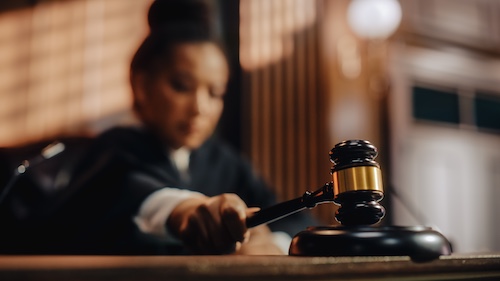Accused of Human Trafficking a Minor in Texas? Here’s What You Need to Know
Facing human trafficking charges involving a minor is one of the most serious situations a person can be in under federal law. These cases often involve claims of sex trafficking, forced labor, or sexual exploitation, and they trigger aggressive action from federal law enforcement. If the alleged victim is a person younger than 18, the law does not require proof of force, fraud, or coercion. A conviction can lead to life in prison, heavy fines, and permanent damage to your future.
In this blog, you will learn how federal and Texas laws define human trafficking, what penalties apply, what to do if you are accused, and how an experienced federal crimes lawyer can help you fight the charges and protect your rights.
What Counts as Human Trafficking Under Texas and Federal Law?
Human trafficking charges involve specific actions defined under both Texas and federal laws. Understanding these definitions is important if you are accused of a crime involving trafficking.
Texas Law: Trafficking of Persons
Under Texas Penal Code § 20A.02, human trafficking includes recruiting, transporting, or harboring a person to force them into labor or sexual activity. If the victim is younger than 18, it is considered sex trafficking even without proof of force, fraud, or coercion. This statute applies to both labor trafficking and commercial sex involving minors.
Federal Law: Trafficking Victims Protection Act
The Trafficking Victims Protection Act (TVPA), under 18 U.S.C. § 1591, defines human trafficking as using force, fraud, or coercion to cause a person to engage in labor or a commercial sex act. If the victim is under 18, federal human trafficking charges apply regardless of consent. These cases are handled in federal court and usually involve federal law enforcement such as Homeland Security or the FBI.
Key Elements in Human Trafficking Charges
To bring a trafficking charge, prosecutors must show that the accused used control tactics like threats, lies, or physical force. In sex trafficking cases involving minors, the government only needs to prove the commercial sex act occurred. Proof of involuntary servitude, debt bondage, or coercion strengthens federal charges and may lead to severe penalties.
Immediate Steps to Take if You’re Accused
If you are facing human trafficking charges, your actions in the first hours and days can affect the outcome of your case.
Do Not Speak to Law Enforcement Without a Lawyer
Remain silent until you have a federal crimes lawyer present. Anything you say can be used against you in court. Federal law enforcement officers are trained to question suspects and gather evidence early. You have a legal right to avoid self-incrimination. Ask clearly for a lawyer and do not explain or defend yourself without legal counsel.
Contact a Federal Crimes Attorney Immediately
Human trafficking is a federal crime. You need a federal crimes attorney who understands how federal court works. Many human trafficking cases are handled by Homeland Security, the FBI, or federal prosecutors. A defense lawyer with experience in sex trafficking and labor trafficking cases can help you respond to charges, challenge weak evidence, and protect your legal rights.
Preserve Evidence and Do Not Contact Alleged Victims
Keep records of messages, travel, phone logs, or anything that could support your side of the story. Do not try to talk to the person accusing you or their family members. Contact can lead to more charges or be used as evidence of guilt. Let your lawyer handle all communication related to the case.
Understand the Seriousness of Federal Charges
Human trafficking charges involving a person younger than 18 carry mandatory prison sentences under federal law. The penalties increase if the government claims you used force, fraud, or coercion, or if the case involves sexual exploitation or serious bodily injury. These cases often include related offenses like involuntary servitude or commercial sex crimes. Early legal action is key to protecting your future.
Understanding the Severity of Federal Human Trafficking Charges
Federal human trafficking charges carry long prison sentences and other permanent consequences if convicted.
Mandatory Minimum Sentences
Anyone convicted of sex trafficking involving a person under 18 faces a mandatory minimum sentence of 10 to 15 years in federal prison. If the case involves force, fraud, or coercion, or the victim is under 14, the sentence increases. The law applies even if there was no physical violence. Proof of a commercial sex act involving a minor is enough.
Enhanced Penalties for Bodily Harm
If the victim suffers serious bodily injury, becomes pregnant, or dies as a result of the crime, the court can impose a life sentence. Charges involving sexual exploitation, involuntary servitude, or debt bondage may also trigger longer sentences. These penalties apply even if the accused has no prior criminal history.
Restitution and Financial Consequences
Convicted individuals must often pay restitution to human trafficking victims. Courts may also seize property, freeze bank accounts, and order fines. Victims may be awarded damages for lost income, medical care, and emotional suffering. Restitution is mandatory under federal law and is separate from any prison sentence.
Long-Term Legal and Social Effects
A human trafficking conviction results in lifetime registration as a sex offender in cases involving commercial sex. Convictions follow you permanently and affect housing, employment, and family rights. You may lose custody, face immigration consequences, and be restricted from using digital platforms. Federal charges do not disappear, and even an accusation can change your life.
Building a Legal Defense
A strong defense can make the difference between conviction and dismissal in federal human trafficking cases.
Challenge the Use of Force, Fraud, or Coercion
Many human trafficking charges rely on proving that the accused used force, fraud, or coercion to control the victim. If the government cannot prove this element beyond a reasonable doubt, the case may not hold. Your federal crimes attorney can argue that there was no threat, deception, or manipulation involved in the alleged act.
Dispute the Age or Role of the Alleged Victim
Federal law treats any person younger than 18 involved in a commercial sex act as a trafficking victim. However, age must be verified with evidence. Your lawyer may challenge the reliability of the alleged victim’s identifying information. In some cases, the person may have misrepresented their age or role in the situation.
Examine Evidence for Weaknesses
Federal investigators often use phone records, surveillance, financial data, and witness testimony. Your defense may include challenging how this evidence was collected or whether it shows actual trafficking. For example, messages or money transfers can be misinterpreted. Any gaps or inconsistencies can create doubt in the government’s case.
Expose Motives Behind False Allegations
Some alleged trafficking victims may have personal reasons to lie, including false promises made to them or attempts to gain legal status through continued presence or visas. Your federal crimes lawyer can present this to show the case lacks credibility. This is especially relevant when intimate partners or family members are involved in the accusation.
Assert Constitutional Violations
If federal law enforcement officers violated your rights during arrest or investigation, evidence may be excluded. This includes unlawful searches, failure to give Miranda warnings, or pressuring you to speak without a lawyer. These violations can weaken the prosecution and support a motion to dismiss.
Contact an Experienced Federal Crimes Attorney Today!
If you have been accused of human trafficking, especially involving a minor, the stakes are high and the consequences are severe. You need a legal team that understands the complexity of federal crimes, the pressure of federal court, and the tactics used by federal law enforcement. At Cowboy Law Group, our team has the experience and focus to take on serious trafficking cases.
Contact us at 832-326-2932 for a free case consultation today!







